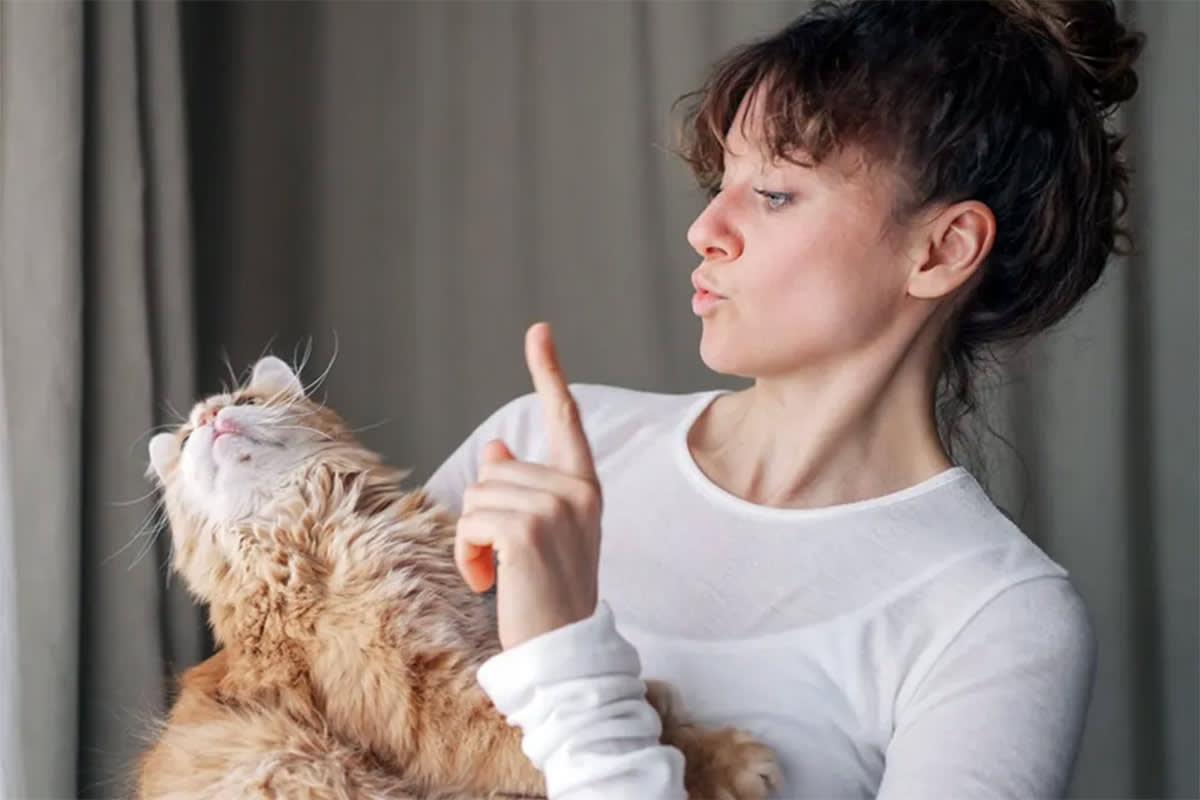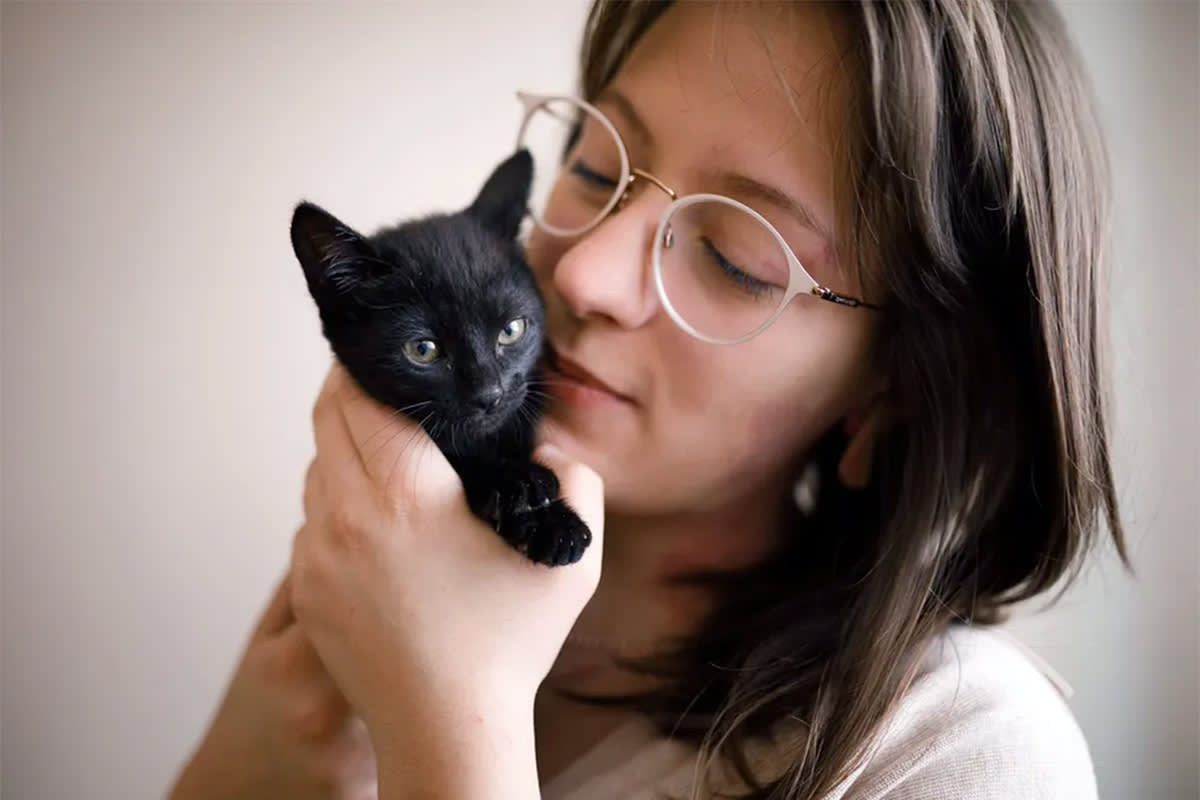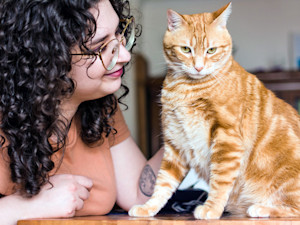7 Things You Do That Hurt Your Cat’s Feelings
Honestly, most of them would bum you out, too.
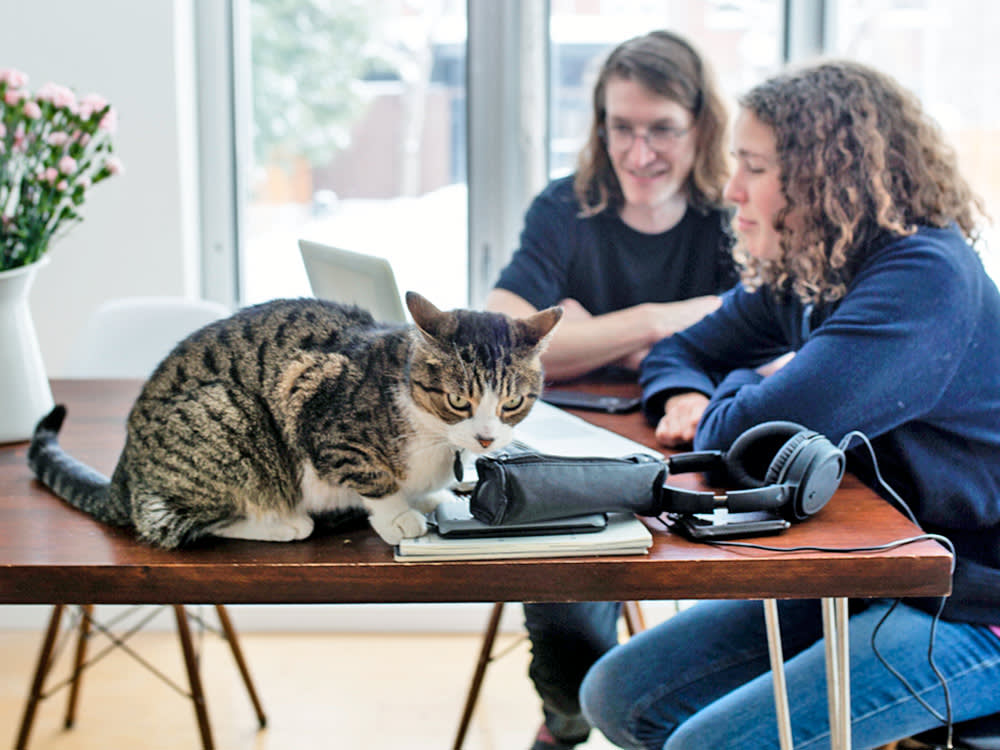
Share Article
Cats tend to play their emotions close to the vest, which can make it easy to believe they don’t have feelings at all, beyond annoyance. For example: My cat Freddy has the steeliest glare I’ve ever seen, from a cat or a human. But underneath that tough exterior beats a tender heart — or at least, I’d like to think so. When I asked cat behaviorist Stephen Quandtopens in new tab whether cats have the same emotions that we do, he waxed philosophical.
“This is one of the great unanswerable existential questions in life. It’s not much different from if an alien life form descended on Earth and we wondered what types of feelings they have,” he says. “We might guess, we might draw inferences, we might watch their behavior to draw conclusions — but in the end, we don't exactly know.”
Whether cats are capable of having their feelings hurt in the same way that we are, though, certain things definitely upset them. “Anything that raises a cat's anxiety or fear or causes them to be conflicted will ‘hurt their feelings,’” Quandt says.
So, how can we keep from hurting our sweet kitties’ feelings? Well, we should be aware of what we do to offend them in the first place. To help us out, Quandt, along with a few other cat experts, listed seven things cat parents do that make our cats feel bad (even if they try to play it cool).

Yelling at them
This one may seem obvious, but I have to admit that I’ve often hoped my cats don’t really care when I lose my temper and snap at them. Alas, this is probably not the case, says Joey Lusvardi, a certified cat behavior consultant at Class Act Catsopens in new tab. “Anything you do that hurts or scares your cat is going to create a rift in your relationship with them. Cats are prey animals, so they’re very sensitive to anything perceived as a threat.”
He says that yelling at your cat not only causes them unhappiness but also leads to common behavior issues (such as overgrooming and yowlingopens in new tab). I guess next time Freddy refuses to get off the bed when I’m trying to make it or zooms under my feet and trips me, I’ll take a couple of deep breaths and get a grip on myself.
Punishing them
Cats will be cats, and that often means being naughty. But whether they’ve just knocked your favorite vase off the table and shattered it (I’m looking at you, Freddy), or they’re peeing outside the litter box, Quandt says punishment is “a big no-no.”
That doesn’t mean we have to let them run wild, doing whatever they want, but it does mean we need to be mindful of how we respond to unwanted behavior. He explains that there’s a difference between discipline and punishment: “If I gently restrain another being from doing something in the moment, I am applying discipline. If I hold them down longer than necessary to achieve the effect, I'm punishing them. Cats may understand discipline, but punishment makes no sense to them.”
Even so, he says we’re walking a fine line when we try to address our cats’ naughtiness. “Discipline can also cause fear, anxiety, and stress, so if one feels a need to discipline a cat — in other words, stop a behavior — one should do it in a way that doesn't hurt their feelings.”
Petting them when they’re not in the mood
If you’ve hurt your cat’s feelings by flying off the handle and yelling, or spraying them with the spray bottle of doom (don’t do that), you might be tempted to try and make it up to them with a nice, long petting session. Before you do, though, make sure they’re feeling receptive.
“Cats are very sensitive to touch,” says Kate Luse, a certified cat behavior consultant at Meowzopens in new tab. She says some experts theorize that cats’ neural pathways for touch and pain are closely connected, or even shared, and that an unwelcome cuddle can actually be painful to your cat. “Petting your cat when or where they don’t want to be touched is likely to make them feel irritated and uncomfortable,” Luse says. Try offering a treat, instead.
Holding them too tight
On a related note, Luse adds, never squeeze your cat, no matter how much you may want to. “Restraining your cat is likely to make them feel frustrated or even fearful, whether it’s holding them because you want to snuggle, or wrapping them in a towel to try to clip their nails,” Luse explains. “When you restrain your cat, you take away their ability to control any aspect of the situation,” she says.
And just like you, cats like to be in control. “If you’re ever tempted to wrap your cat in a ‘purrito’ to clip their nails, ask yourself how you’d feel if you were put in a straitjacket to get your nails done or your hair cut,” Luse says.
Being too busy to play
While it’s important to respect our cats’ boundaries and refrain from unwanted petting or squeezing, we also need to be sensitive to their feelings of boredom and loneliness, says Dr. Nita Vasudevanopens in new tab, a veterinary consultant for Embrace Pet Insuranceopens in new tab.
“A lack of play, stimulation, or vertical space can lead to depression or behavioral issues,” she explains. So, make sure you provide your cats with plenty of toys — and take some time to play with them every day. “Boredom is stressful,” Dr. Vasudevan says. And if you have more than one cat, like I do, make sure to spread the love around. “In multi-cat homes, giving one cat significantly more attention can cause jealousy or withdrawal in others,” she warns.
Neglecting their litter box
Yeah, yeah — it’s no one’s favorite chore. Still, it’s important to scoop that litter box at least once a day. “Not scooping the litter boxes daily will almost certainly cause your cat to feel stressed,” Luse says. “Cats like clean litter boxes. They don’t want to have to gingerly pick their way around smelly clumps of urine and feces to find a clean spot to go to the bathroom.”
If you want to know how your cat feels when you forget to scoop their poop and pee, she suggests imagining that you have to use a dirty, stinky port-a-potty every day, “That will give you some insight into the stress a dirty litterbox can cause your cat,” she says.
Moving the furniture
Nothing energizes me like rearranging the layout of my little New York City apartment. Unfortunately, the experts I consulted informed me that my cats probably aren’t enjoying my adventures in interior design as much as I am.
“Cats are creatures of habit,” Dr. Vasudevan says. “Sudden changes — new furniture, guests, or moving their litter box — can be emotionally unsettling.” (I guess that means my cats don’t appreciate it when I invite my friends over to admire my newly rearranged apartment, either.) She says I should watch for changes in my cats’ body language, vocalizations, behavior, and health, which can all indicate that they’re in distress.
How can you soothe your cat’s hurt feelings?
Whoever said that love means never having to say you’re sorry must not have had a cat. When I lose my cool with my brood, I immediately want to make amends. Whether my cats feel remorse for their bad behavior or not, I certainly do.
But what’s the best way to apologize? Besides giving them some extra love and attention — while respecting their boundaries, of course — Lusvardi suggests that taking steps to lower my own stress level might be the best approach.
“Cats can, directly or indirectly, pick up on our emotions,” he says. “It may be a result of subtle changes in your behavior, but it’s not uncommon to see a cat display signs of stress when their humans are stressed. Managing your own emotions helps your cats, too!” I guess that means going to therapy makes me a better cat parent, as well as a happier human. Who knew?
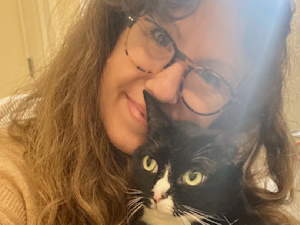
Elizabeth Laura Nelson
Elizabeth Laura Nelson is a writer and editor based in Brooklyn, New York, whose work has appeared in The New York Times, Jenny, Best Life, YourTango, Elite Daily, and more. She focuses her work on relationships, health and wellness, midlife, and lifestyle. As a child, Elizabeth was scared of cats (claws and teeth, yikes) but she has since gotten over her fear and now shares her home with three sweet and gentle feline companions who make life better (and cuddlier) every day.
Related articles
![Woman petting her orange cat at home.]()
11 Ways You’re Annoying Your Cat Without Realizing It
Not everybody loves a dance party.
What Is “Mlemming” and Why Do Dogs and Cats Do It?
It may give you insight into your pet's health and wellbeing.
Why Does My Cat Make “Stink Face”: Understanding the Flehmen Response
It’s definitely not because you disgust them.
Why Do Cats Lay On Your Chest?
That’s quite the cuddle.
![Man cuddling his gray cat.]()
Does Your Cat Think You’re Their Mom?
You love them like a child, but is the feeling mutual?
